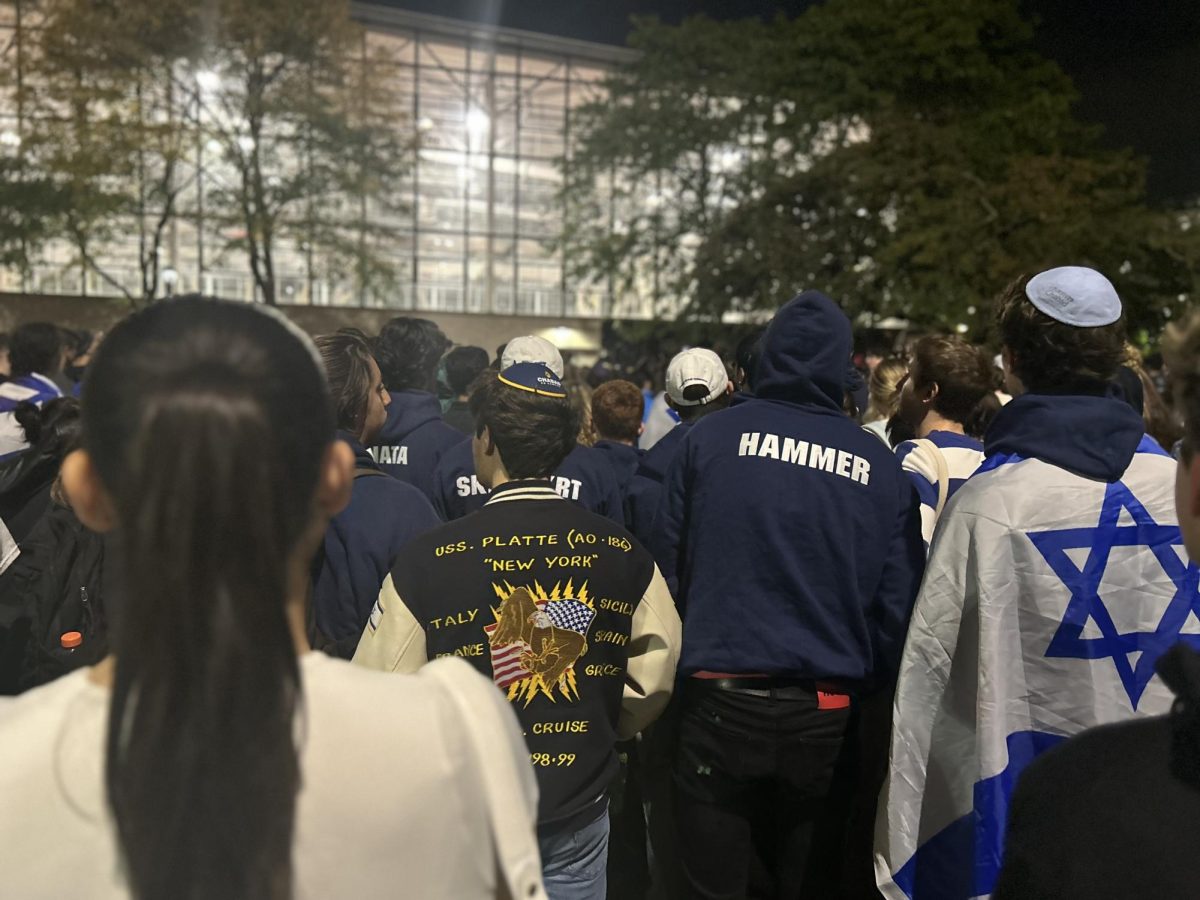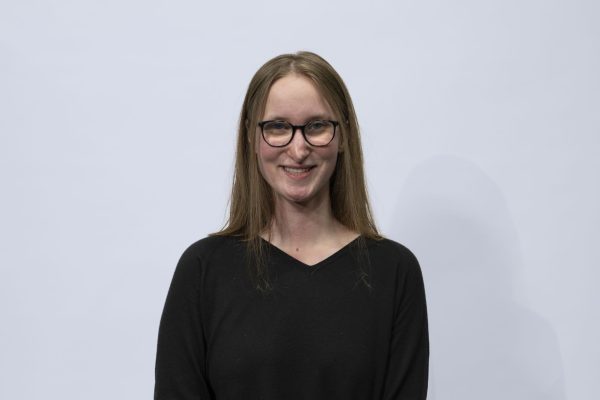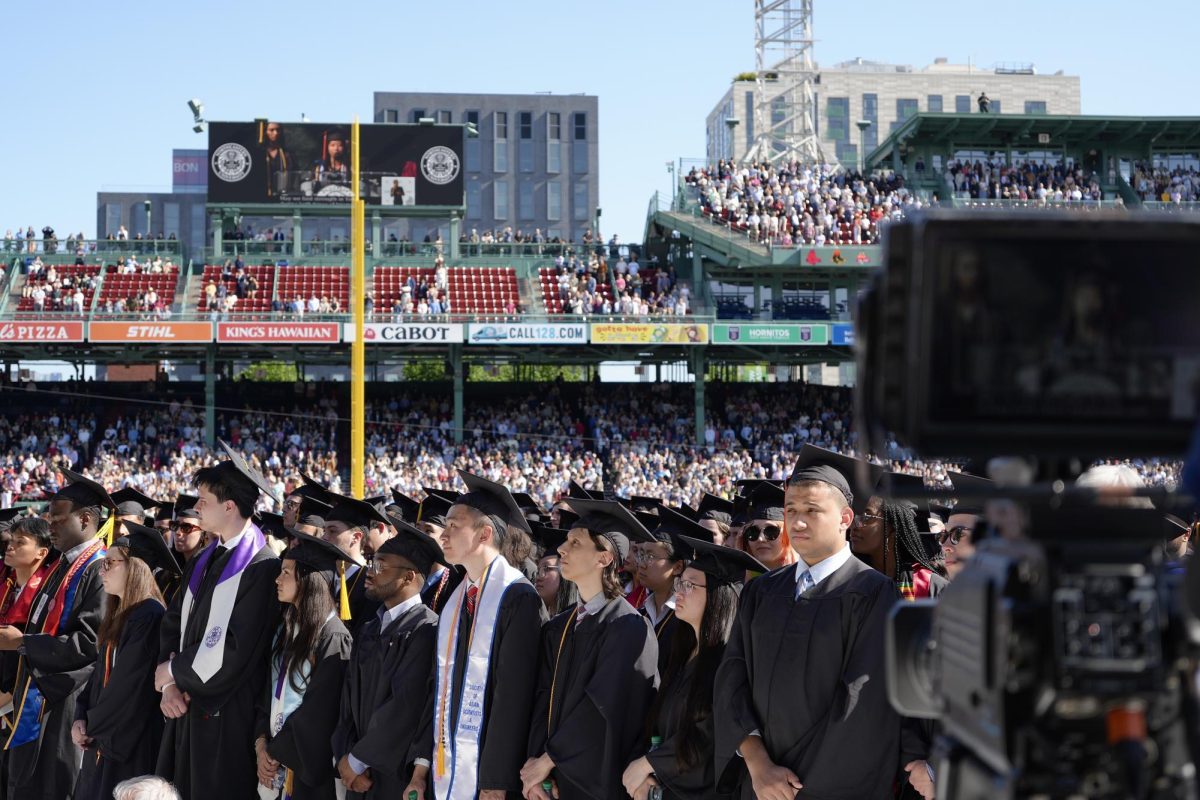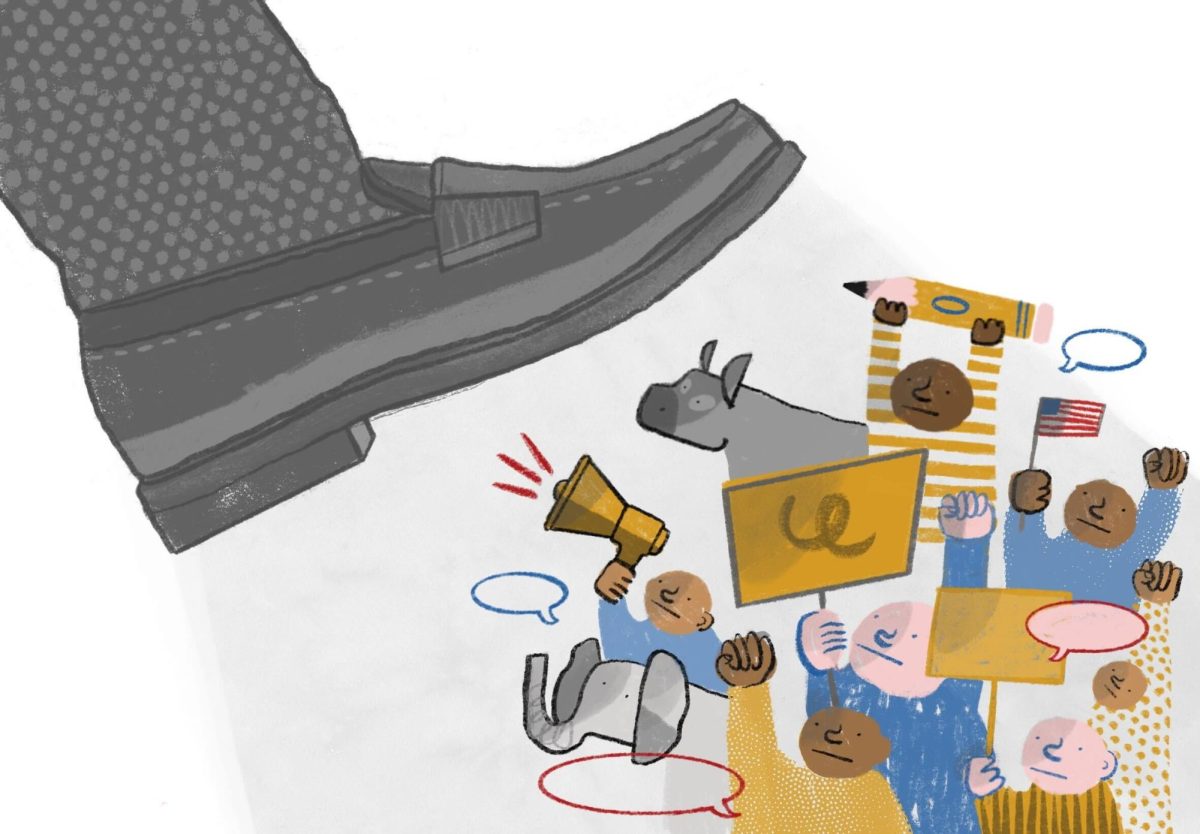Known as one of the heaviest sleepers around, I miraculously jolted awake Oct. 7, at 8 a.m. to a flurry of buzzes on my phone. My eyes darted from i24NEWS, an Israeli-based international news channel, to the Times of Israel and finally WhatsApp. Chats with my family and gap-year friends flooded with concerned text messages: “Liat, check the news!” “Have you heard what happened?” I felt a sinking feeling in my chest and immediately knew this was not the typical Hamas rocket strike from Gaza into Israel. Since I could remember, my mom cooked dinner every night with the Israeli news channel blaring on the TV, often reporting on the consistent Hamas rockets fired into Israel before 2006. I knew, achingly, this time was different.
My head was still foggy with dreams, and I struggled to make sense of the news that was flooding my mind. An attack? No, swarms of terrorists dismantling the border. Sderot, Be’eri, Kfar Aza, all the peaceful, agricultural kibbutzim I had visited along the border of Gaza. Families there, murdered in their homes? I hoped the loving people living at the border who welcomed me into their homes with open arms were not among them. Merciless terror at the Supernova music festival? Please don’t tell me my cousins were there. My heart and my brain were fighting between denial and logic. Hoping I was still asleep and this was just a cruel nightmare, I checked the news. Nothing could have prepared me for the headlines staring back at me: Blood. Rape. Mutilation. Bodies. Death.
As all the hairs on my body stood, I almost wished I had not looked. Without hesitation, I called my mother. The fear in her voice when she picked up the phone was enough for me to understand the severity of this massacre.
Even in 2022, when I was stuck hiding in Dizengoff Mall for seven hours because of a terrorist attack down the street, my mother didn’t sound as panicked as when I called that morning. At 8:30 a.m., I knew this massacre did not compare. And now, today, I know that never in the history of Israel has violence to this atrocious degree been inflicted upon innocent Israelis.
What shocked me the most was how none of my Jewish or Israeli friends were given the time or space to grieve. Not even 24 hours after the harrowing attack, people were already pointing fingers, questioning who was to blame. Later in the day of Oct. 7, I managed to leave my apartment and eat at a cafe when I overheard a conversation about the Israeli government. While its criticism is necessary like any other government, I was baffled to hear how these people were unable to acknowledge that, regardless of politics, innocent people were savagely murdered a few hours ago. Then, on Instagram, I saw a close friend of mine, who has celebrated numerous Jewish holidays in my own home, posting that Israelis are colonizers, thereby denying our indigeneity to our homeland. What bothers me is not their prejudiced beliefs. Rather, it is their inability to ask me how I am doing and if my family is safe.
There was nowhere I felt I could freely express my identity without being attacked. My grief isn’t allowed because my grief is political. I didn’t choose this reality, but I will not sit in silence as I witness attempts to justify the inhumane torture my fellow Israelis endured.
People question why I stand with Israel: a country I call home. A country in which my parents had lived most of their lives. A country in which my family and friends have lived their whole lives. This is the land my grandparents fled Morocco for, living in tents in the desert for nearly a decade during Israel’s establishment. I don’t want my country to cease to exist. If Israel disappears, then so does part of my identity.
Why is my identity and its legitimacy being questioned at the hands of politics and propaganda? I have seen Hamas propaganda, such as photos of children from the Syrian Civil War, AI generated photos and staged videos of this war. People believe these fake displays of violence, yet they refuse to believe the mounds of evidence showing how Hamas raped Israeli victims on the basis that the proof is untrustworthy since Israel is the source. It concerns me how easily people believe the claims of Hamas and how quickly they will question (at best) or outright deny the claims of Israel. I hear people chant “from the river to the sea,” a slogan that calls for the erasure of the Jewish people and of Israel from the map. This pains me to hear because Hamas has instilled psychological and physical trauma into Israelis and Jews from that slogan alone, and those who chant it tend to justify this psychological harassment by denying our trauma. Anyone in support of a two-state solution knows that there is no reality in which Jewish people and Palestinian people do not both exist in this land. We both have historic ties to this land, and neither group is leaving.
On campus, I walk in fear that I may be attacked as I have seen happen to students at Harvard, UMass Amherst and others. Last semester, I had to email my professors on two separate occasions that I felt unsafe to come to class because students were chanting these calls for genocide of Jewish people outside of my dorm. Another time, I was studying in the Boston Public Library when protesters began to chant “intifada revolution;” out of fear for my safety, I did not leave the library until the mob had dispersed.
As an American Israeli Jew, my identity might only be politics to some people, but it is my life, my lived experience, and my existence. Every day, I feel myself fighting to be a voice heard — a voice listened to. Nowadays, I feel as though I shout, “My Jewish life matters!” into a broken microphone to an audience that just came to listen to the person speaking after me.
I have digested so much information these past 105 days. As someone who has been studying Jewish history my entire life and Middle Eastern geopolitics for the past six years, today, I find the most worrisome claims in the depths of any Jewish Zionist’s comments section on Instagram. Most of the information I read there is simply utter delusion from rewritten, non-factual history. For instance, I have seen people use falsified maps of Judea and Samaria to defend their views of Israel as a colonizer state. Some even justified the belief that Jewish statehood should cease to exist by quoting a speech from Osama Bin Laden. In fact, I never understood why people have such a problem with Zionism, which, in my view, is the core of the modern Jewish identity. The belief that Jewish people have the right to self-determine in their ancestral homeland: Eretz Yisrael, the biblical name of Israel. What part of that definition makes people so angry? Is it the “Jewish people” part? Or “self-determination?” “Ancestral homeland?”
What bothers me is how acceptable it has become to tokenize Jewish people. Suddenly, our sole responsibility is to validate our Jewish identity to the world. When people redefine Zionism and Jewish history to fit their antisemitic narrative, we are forced to prove our native ties to our homeland, while the facts are woven deep into the soil. Are 4,000 years of Jewish history in Judea and Samaria not enough to prove our indigeneity? In Israel, archaeology, ancient artifacts, the millennia of war and persecution are carved into our land and displayed in our museums. Even during my study abroad experience, I was reminded of our persecution while staring at the Arch of Titus, a monument celebrating the conquests of the Roman Empire and, consequently, Jewish persecution.
The diaspora displaced the Jewish people to countries all over the world. My mother’s ancestors created a new life in Morocco and worked hard to assimilate and progress. Their perseverance and ambition to survive as Jews in a country that didn’t accept their identity used to be incomprehensible to me. Why would you want to live in a country knowing your neighbors hate you for an identity you cannot change? When the pogroms came to their city, it took looking death in the eye to convince my great-grandparents to gather their children, a few of their belongings and leave — abandoning their home in Casablanca before these mobs had the chance to take my family’s life. This was the fate for more than 850,000 Jewish people living in Arab countries at the time.
To this day, we do not know either of my grandparents’ birthdays. They don’t talk about their childhoods either. It is something we know not to ask about.
Since Oct. 7, those I once considered close friends won’t accept my Jewish heritage. My friends ignored and shunned me for an identity that I was born with. Instead of checking up on me during the most tragic time of my life, they were texting in our group chat about their Halloween costumes. These are friends who met some of my Israeli family members, yet proceeded to post antisemitic conspiracies about Israel before even asking me if my family was safe or if I was okay. I have considered abandoning my life in the U.S. and moving to Israel, where I feel safe to be Jewish and Zionist. However, I am beginning to see why my ancestors fought so hard to stay in the country they built themselves into. The United States is my country just as much as Israel. I formed my entire being here. Not only was I raised here, but my immigrant parents did even more than bend themselves backward for us to live a high quality of life here. I will not let other people’s ignorance toward my Jewish identity hold so much power over me, such that they dictate whether I leave the U.S., the very country I was born and raised in.
In the wake of constant gaslighting, non-Jewish people attempt to tell me what is and isn’t discrimination against my identity. I am exhausted, and I can’t take much more of the fight for my right to exist. No other nation has been unequivocally denied the right to exist other than the sole Jewish nation.
People keep telling me that I am on the wrong “side” of this conflict. Side?
For some, this conflict is a matter of being on the “right side of history.” For me, this conflict is a matter of life or death for my family and friends in Israel. On Oct. 7, their security, sanity and well-being, at any level of the word, were thrown out of a 100-story building, splattering on the floor with such force that nothing can wash off the stains of trauma the massacre left on Israeli society.
I will never forget the words Northeastern’s Hillel Israeli fellow, Liron Raphael, tragically said during our vigil on Oct. 10: “There will be an Israel before Oct. 7 and an Israel after Oct. 7.”
Hamas’ charter distinctly states that its violence is toward the Jewish people. Not Zionists, not Israelis and not the Israeli government. Hamas has also stated that it would repeat Oct. 7 “a second, a third and a fourth time.” They said Oct. 7 was just a “dress rehearsal.” How does this not concern the world about what this means for the future of the Jewish people?
Please know that I am not here to compare the traumas of Israelis and Palestinians. The plight of the Palestinian people nauseates me as much as the suffering of my people does. We need to legitimize each other’s history and affliction if we want to live a peaceful future in the land we are both indigenous to.
However, I am here to stand as a symbol to my Jewish friends. This is an incredibly isolating time to be a diaspora Jew, but you are not alone. Your Jewish community is here for you as it has been for millennia. If you feel silenced and alone, I invite you to Hillel or Chabad’s Shabbat dinners. We gather each Friday, and there will be plenty of smiles to welcome you.
And finally, since I am tokenized as a Jew, forced to explain and justify every aspect of more than 4,000 years of history and persecution, I will use my Jewish voice to clearly explain what antisemitism is:
Making false generalizations with derogatory language about the Jewish people and even using the term Zionist instead of Jew in such claims is antisemitic. “Genocidal baby-killers.” “Zionist pigs.” “White supremacist colonizers.” These are terms my Jewish friends and I have been called on our campus. No matter the verbiage, these offensive terms use antisemitic conspiracy theories and stereotypes — the blood libel, the fascist Jew, the communist Jew, the capitalist Jew, just to name a few — to baselessly target the Jewish people and question our right to exist.
Historically, a symptom of antisemitism involves scapegoating the Jewish people. That is, blaming the Jewish people for injustice instead of confronting the root of the problem, which would typically be a country’s leader, institutions or even natural disasters. A recent example of this would be when Jewish people were blamed for causing the spread of COVID-19 or for profiting off its vaccines. Blaming solely the Jewish people for the injustices Palestinians experience under Hamas’ rule in Gaza is antisemitic. The root of Gazan suffering stems from its corrupt government, Hamas. Although Hamas targets Jewish people, it takes no regard for its Palestinian civilians either. Hamas has stolen the money and resources acquired through international funds to improve the lives of Gazans to strengthen its terror capabilities. Further, Hamas weaponizes the Gazan people to achieve Jewish extinction from the land of Israel while its leaders hide underground or in luxury hotels in Qatar. Evidently, Hamas is not the solution for Palestinian liberation.
Attacking a Jewish person for being a Zionist is antisemitic. In the simplest terms, Zionism is the right of the Jewish people to be a people. Anti-Zionism denies Jewish people the right to a legitimate statehood. The anti-Zionist agenda is against decolonization, which seeks to prevent indigenous people from returning to their native land. Anti-Zionism declares an imperialist ideology: to colonize the Jewish peoples’ land yet again, to get rid of the only modern Jewish state and to support this idea while existing in a privileged, post-colonial world.
We must acknowledge that this holy land deserves peace between the people living in it; a two-state solution would provide both people with the statehood we all require. Every day, we sit in immense privilege: the comfort of our own homes, secure with our families, at the cost of the hundreds of years of colonization that stripped natives off their land. Somehow, still, anti-Zionists have the audacity to declare that indigenous people, the Jewish people, are not allowed to exist in their native land. This denial is a double standard and is antisemitic.
As Klara Firestone, the daughter of Holocaust survivors who were recently victims of antisemitic vandalism, said, “Hate me for something I did, not for who I am because I can’t change that.”
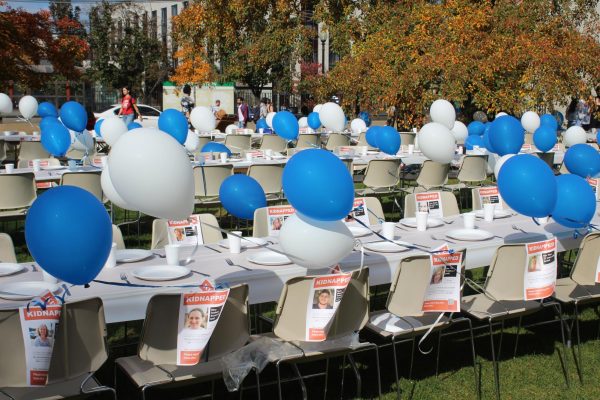
Liat is a second-year international business major with a concentration in accounting & advisory and a minor in psychology. They can be reached at weiss.lia@northeastern.edu.


